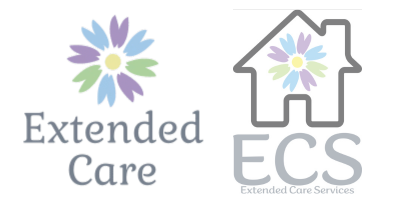Living with a disability can present its own set of difficulties when it comes to mastering essential life skills. However, with perseverance, determination, and the right tools and resources, it’s entirely possible for adults with disabilities to lead fulfilling, self-reliant lives.
Whether you are an individual living with a disability, a family member, or a caregiver, we hope that this guide will serve as a valuable resource in helping you navigate the sometimes complex world of disability and independent living.
Most Important Life Skills to Learn for Adults with Disabilities
While there are countless life skills that one can acquire, we believe that emotional skills, social skills, and thinking skills form the cornerstone of personal growth and independence. Let’s delve deeper into each of these skill sets.
1. Emotional Skills
Emotional skills are essential in helping individuals with disabilities understand, express, and manage their emotions. Developing these skills can lead to improved mental health and well-being, as well as foster better relationships with others. Key emotional skills to focus on include:
- Self-awareness: Being able to recognize and understand one’s emotions, strengths, limitations, and needs.
- Emotional Regulation: Learning how to manage and cope with difficult emotions, such as anger, sadness, or anxiety.
- Empathy: Understanding and sharing the feelings of others, can help in building strong social connections and support networks.
- Resilience: Developing the ability to bounce back from setbacks and challenges and maintain a positive outlook on life.
2. Social Skills
Social skills are crucial for adults with disabilities, enabling individuals to communicate and interact with others effectively. Building strong social skills can increase self-confidence, reduce feelings of loneliness, and promote overall mental health. Some important social skills to develop include:
- Verbal and Non-verbal Communication: Expressing oneself clearly and effectively through speech, gestures, and body language.
- Active Listening: Paying attention to what others say and responding empathetically can help build trust and rapport.
- Assertiveness: Standing up for oneself and expressing one’s needs and opinions respectfully and confidently.
- Conflict Resolution: Being able to resolve disagreements and misunderstandings in a constructive and non-confrontational way.
3. Thinking Skills
Thinking skills, also called cognitive skills, are essential for problem-solving, decision-making, and overall intellectual functioning. For adults with disabilities, honing these skills can increase independence and a greater sense of autonomy. Key thinking skills to focus on include:
- Critical Thinking: Analyzing and evaluating information to make informed decisions and solve problems.
- Creativity: Using imagination and originality to develop new ideas and solutions.
- Planning and Organization: Setting goals, prioritizing tasks, and managing time effectively.
- Memory and Attention: Developing the ability to retain and recall information and maintain focus and concentration.
Why It’s Worth Honing These Skills
Investing time and effort into developing emotional, social, and thinking skills can have a profound impact on the lives of adults with disabilities. By honing these skills, individuals can:
- Lead More Independent and Fulfilling Lives: With increased self-awareness, emotional regulation, problem-solving abilities, and social connections, adults with disabilities can gain the confidence and support needed to navigate life’s challenges.
- Create Meaningful Relationships: Strong emotional and social skills enable individuals to form deep and lasting connections with others, which can contribute to better mental health and overall well-being.
- Enhance Employment Prospects: By developing these critical life skills, adults with disabilities can increase their employability and secure stable, fulfilling jobs.
The Bottom Line
Overall, life skills are essential for personal growth, independence, and success, especially for adults with disabilities. By focusing on developing emotional, social, and thinking skills, individuals can overcome barriers as they move forward. With the right support, resources, and determination, nothing is out of reach.
If you are looking for home- and community-based services in Colorado, contact Extended Care today. We are here to help you find the services you need to improve your quality of life!

